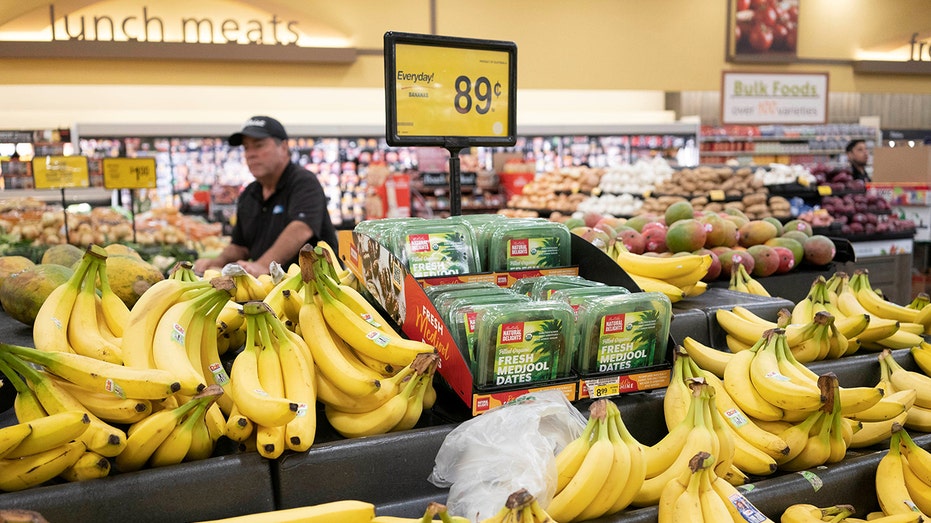Bank of America chief economist sees high chance of mild recession this year
BofA economist: 'Really hard' for the Fed to achieve a soft landing
Fed has to 'stick to their guns' as economy slows
Baird Investment strategy analyst Ross Mayfield discusses the Fed's handling of inflation.
Is the U.S. economy on the cusp of a recession? According to Bank of America's newest chief economist, the answer is yes.
Michael Gapen, the head of U.S. economics at Bank of America, told FOX Business that he expects the Federal Reserve to inadvertently trigger a downturn this year with its war on inflation.
"This cycle probably ends in a mild downturn," Gapen said. "How do I come to that? It's basically just history. It's really hard to achieve a soft landing."
Although Fed policymakers are counting on finding that elusive sweet spot – known as a soft landing – as they hike interest rates at the fastest pace in three decades, history shows that the U.S. central bank often struggles to successfully thread the needle between tightening policy and preserving economic growth.
FED LIKELY TO CONTINUE WITH RAPID INTEREST RATE HIKES DESPITE INFLATION RESPITE
Recent research from Alan Blinder, a former Federal Reserve board vice chairman and a Princeton economist, identified 11 tightening cycles since 1965, of which eight were followed by recessions. Still, that doesn't mean a severe recession is guaranteed: There were five very mild recessions in which GDP fell less than 1%, or there was no economic decline at all.
Fed Chairman Jerome Powell had previously identified three examples, in 1965, 1984 and 1994, when the Fed tightened monetary policy, reduced inflation, and saw no decline in growth.
Gapen projected that a recession would likely be mild rather than prolonged.
"Am I saying that the Fed blows it? No," he said. "They have an interest rate policy and balance sheet tools, and they're kind of blunt instruments. It's hard to precisely target things. That's not the way our economy works, just historically you're more likely to get something worse than a soft landing."
There are growing fears on Wall Street that the Fed could inadvertently send the economy into a recession as it takes a more aggressive approach to fighting inflation, which is at a multi-decade high. Policymakers have approved four consecutive rate hikes, including back-to-back 75 basis point increases. They have confirmed that another super-sized increase is on the table in September as they remain "strongly committed to returning inflation to its 2% objective."
Jerome Powell said during his post-meeting press conference in July that another 75-basis point hike could be appropriate in the future but that it ultimately hinges on upcoming economic data.
HOW THE FEDERAL RESERVE MISSED THE MARK ON SURGING INFLATION

Federal Reserve Chair Jerome Powell arrives to speak at a news conference, March 3, 2020, in Washington. (AP Photo/Jacquelyn Martin / AP Newsroom)
Hiking interest rates tends to create higher consumer and business loan rates, which slows the economy by forcing employers to cut back on spending. Mortgage rates have nearly doubled from one year ago, while some credit card issuers have ratcheted up their rates to 20%.
Economic output is already falling in the U.S. Gross domestic product, the broadest measure of goods and services produced across the economy, shrank by 0.9% on an annualized basis in the three-month period from April through June. Growth already tumbled 1.6% in the first three months of the year.
Recessions are technically defined by two consecutive quarters of negative economic growth. They are characterized by high unemployment, low or negative GDP growth, falling income and slowing retail sales, according to the National Bureau of Economic Research (NBER), which tracks downturns.
With back-to-back declines in growth, the economy meets the technical criteria for a recession, which requires a "significant decline in economic activity that is spread across the economy and that lasts more than a few months." Still, the NBER – the semi-official arbiter – may not confirm it immediately as it typically waits up to a year to call it.

A customer shops at a supermarket in Millbrae, California, Aug. 10, 2022. (Li Jianguo/Xinhua via Getty Images / Getty Images)
There are conflicting signs about the economy's health, fueling debate over the state of the economy: The number of Americans filing for unemployment benefits has gradually increased, companies have announced layoffs or hiring freezes, and the housing market is softening. At the same time, unemployment remains near a historic low, and consumers are still spending heavily, despite scorching-hot inflation.
Powell told reporters last month that he does not believe the U.S. economy is in a recession, citing the low unemployment rate and the 2.7 million jobs created in the first half of the year.
CLICK HERE TO READ MORE ON FOX BUSINESS
"I do not think the U.S. is currently in a recession, and the reason is there are too many areas of the economy that are performing too well," Powell said. "This is a very strong labor market … It doesn’t make sense that the economy would be in a recession with this kind of thing happening."





















